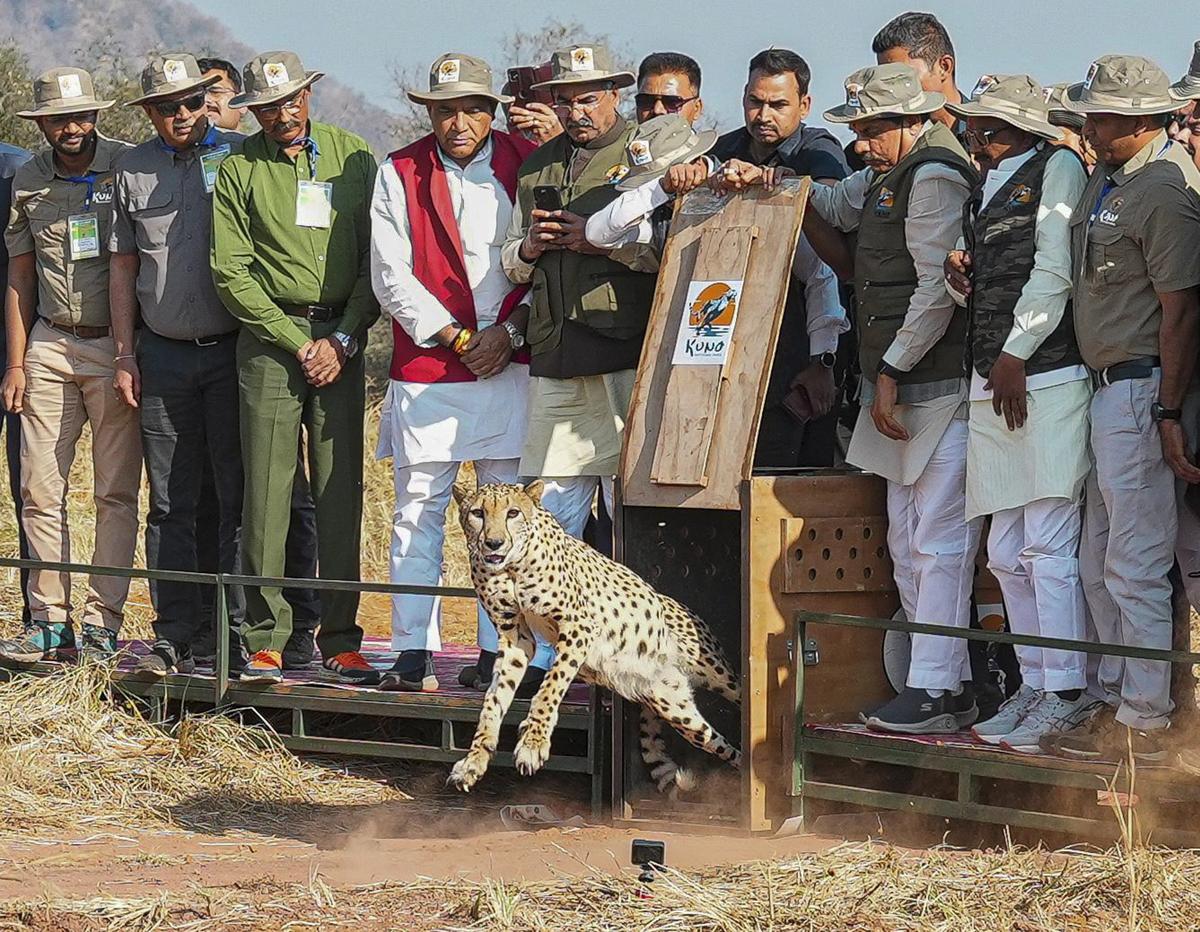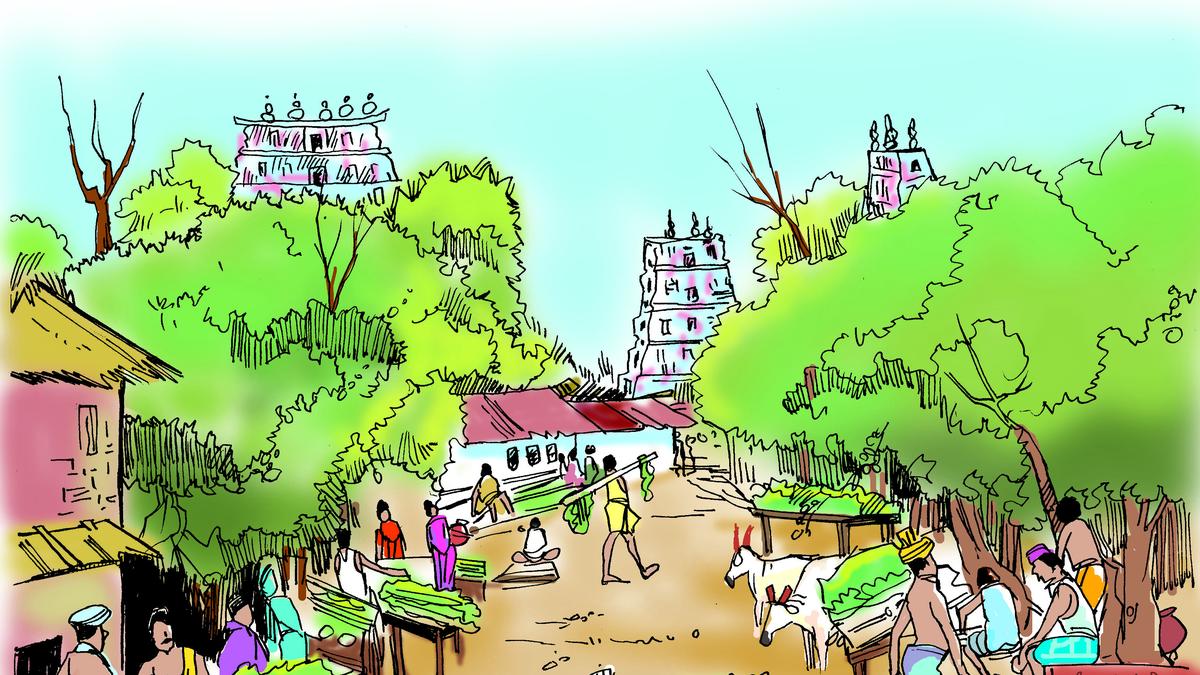Neither ecologically sustainable nor ethical, says study over translocation of African cheetahs to India


A file photo of cheetahs at Kuno National Park (KNP) in Madhya Pradesh’s Sheopur district.
| Photo Credit: PTI
A new study by the Centre for Wildlife Studies (CWS), which examines the ethical, ecological and welfare challenges associated with the translocation of African cheetahs to India, has expressed concern over the translocation of the animals and also raised questions about its scientific merit and long-term viability.
The study, ‘Delineating the environmental justice implications of an experimental cheetah introduction project in India’, was published in Frontiers in Conservation Science.
According to CWS, the study highlights that the translocation of African cheetahs to India has resulted in significant welfare challenges, with a mortality rate of 40%-50% in the first phase of the project, far below the expected survival rate of 85%.

20 introduced to KNP
Under Project Cheetah, so far 20 African cheetahs (Acinonyx jubatus), eight from Namibia in September 2022 and 12 from South Africa in February 2023 were introduced into the Kuno National Park (KNP) in Madhya Pradesh.
CWS also said that the cheetahs involved in the project have experienced high levels of stress, with over 90 chemical immobilisations and regular veterinary interventions, raising concerns about their physical and mental health.

Madhya Pradesh Chief Minister Mohan Yadav during the release of female cheetahs ‘Dheera’ and ‘Asha’ and 3 cubs from a large enclosure into the open forest in Palpur-Kuno National Park on February 5, 2025.
| Photo Credit:
PTI
It further said that African cheetah populations are already under pressure, with only around 6,500 mature individuals remaining in the wild.
“With an initial mortality rate of 40%–50% in these cheetahs, currently all individuals are being kept in captivity in India, with plans to import 12 individuals annually till a viable population is established. The researchers of this paper argue that the project’s reliance on a continuous supply of cheetahs from southern Africa, is neither ecologically sustainable nor ethical,” it said.
The study was led by Yashendu Chinmayee Joshi, Doctoral Fellow at the Centre for Wildlife Studies, along with co-authors Stephanie E. Klarmann, Blood Lions Non Profit Company (NPC) and University of Johannesburg, South Africa; and Louise C. de Waal, Blood Lions Non Profit Company (NPC), South Africa.

Justice-informed approach
The authors have suggested that a more justice-informed approach would ensure that conservation decisions are based on inclusive, participatory processes, which take into account the diverse values people place on nature.
“Our current approach risks overlooking diverse knowledge systems and values, the nuanced ways in which people interact with nature, their perceptions of wildlife, and importantly, their consent to bear the consequences of such initiatives. Conservation efforts should focus more on their ability to maintain sustainable shared spaces between humans and wildlife, rather than causing further division and distress,” said Mr. Joshi.
Published – February 19, 2025 05:43 pm IST





